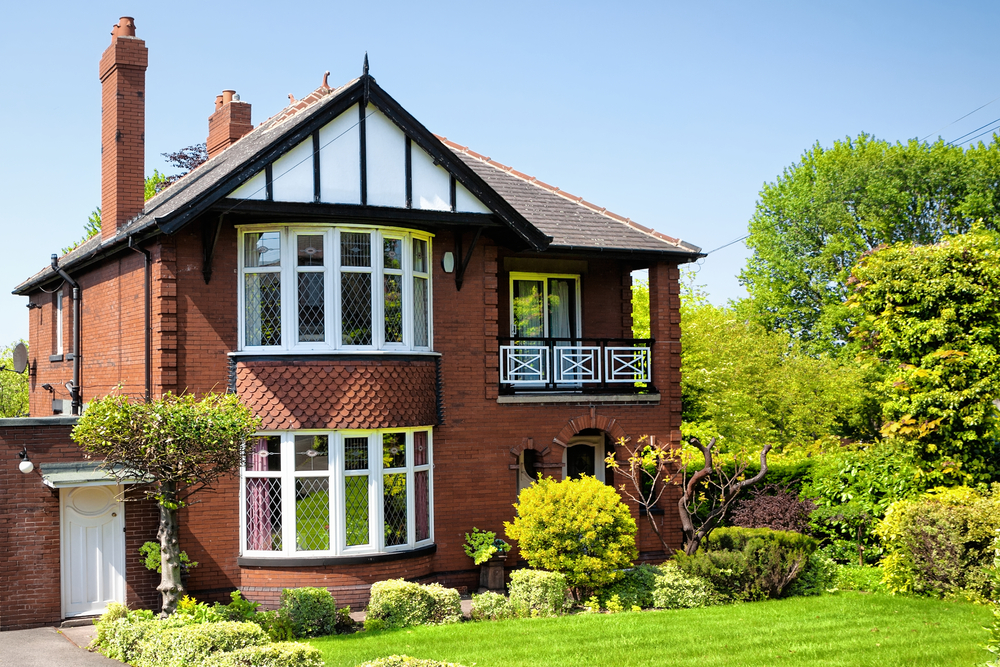Average house prices have risen above £250,000 for the first time in history as buyers come out in force to take advantage of the stamp duty holiday.

This is according to the latest house price index from Halifax which reported a 7.5% year-on-year increase in October.
It also recorded a 5.3% rise over the four months to the end of October. However, while the average house price is at £250,457, the monthly growth was not quite so strong. Indeed, month-on-month growth slowed considerably, down to just 0.3% compared to 1.5% in September.
Russell Galley, managing director of Halifax, said: “The average UK house price now tops a quarter of a million pounds for the first time in history, as annual house price inflation rose to 7.5% in October, its highest rate since mid-2016.
“Underlying the pace of recent price growth in the market is the 5.3% gain over the past four months, the strongest since 2006.”
But he did not think this extraordinary level of growth was set to last, adding: “Though the renewed lockdown is set to be less restrictive than earlier this year, it bears out that the country’s struggle with Covid-19 is far from over.
“With a number of clear headwinds facing the housing market, we expect to see greater downward pressure on house prices as we move into 2021.”
‘Ridiculous’
There was an equally cautious response to the news from property professionals.
Indeed, Lucy Pendleton, property expert at independent estate agents James Pendleton, said: “Average house prices may have crashed through a quarter of a million pounds for the first time but the growth rate that got them there is frankly ridiculous.
“There seems little prospect that house prices are really rising this fast nationally, and it’s a dangerous thing to be saying, unless true, because it can scare off first-time buyers, who are the lifeblood of the market.
“The huge demand that has driven the market higher has been fuelled by armies of buyers pumped up by impatience, adrenalin, frustration and relatively cheap borrowing.”
And David Westgate group chief executive at Andrews Property Group, “On the surface this is one of the greatest bull runs in the UK property market, but sadly a giant bear is looming on the horizon.
“You can feel its presence in the negligible monthly growth rate of just 0.3% compared to September.
Demand for detached
The data also offered an insight into the types of property buyers are seeking. Indeed, Halifax revealed flat prices had increased by 2% since March compared to the 6% increase being experienced by a typical detached property.
Halifax said, in cash terms, this equated to an £2,883 for flats compared to £27,371 for detached houses.
Mark Harris, chief executive of mortgage broker SPF Private Clients, said: “The impact of Covid is clear with the flat-to-house price differential never as pronounced as this before.
“People require more outdoor space and not all flats have roof terraces and balconies. But while Covid is having a massive impact it is likely to be temporary in the scheme of things, with people not able to work from home four days a week forever.
“Employers are likely to be more accepting of home working but once we have more normality, they will want to see people in the office more. Those flats that are 20 minutes from the workplace will be more appealing than a house on the Dorset coast if you have to be in the office four times a week.”
[box style=”4″]
Need help to find a mortgage?
What Mortgage has teamed up with L&C to offer you expert advice on the right mortgage deal.
Whether you’re buying a new home, remortgaging to a new deal or buying an investment property, L&C can help – and you’ll pay no fee for their advice. To find out more, click here.
[/box]














